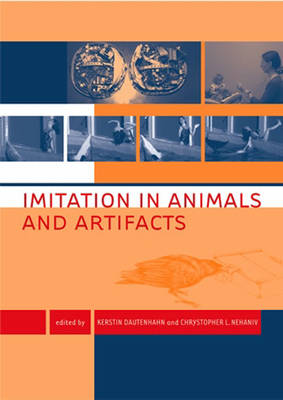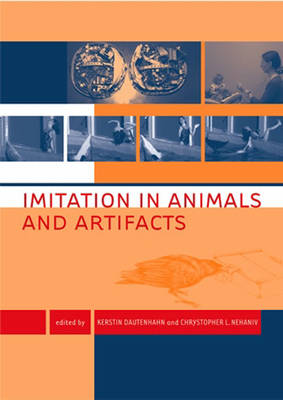
- Retrait gratuit dans votre magasin Club
- 7.000.000 titres dans notre catalogue
- Payer en toute sécurité
- Toujours un magasin près de chez vous
- Retrait gratuit dans votre magasin Club
- 7.000.000 titres dans notre catalogue
- Payer en toute sécurité
- Toujours un magasin près de chez vous
Imitation in Animals and Artifacts
Description
The effort to explain the imitative abilities of humans and other animals draws on fields as diverse as animal behavior, artificial intelligence, computer science, comparative psychology, neuroscience, primatology, and linguistics. This volume represents a first step toward integrating research from those studying imitation in humans and other animals, and those studying imitation through the construction of computer software and robots.
Imitation is of particular importance in enabling robotic or software agents to share skills without the intervention of a programmer and in the more general context of interaction and collaboration between software agents and humans. Imitation provides a way for the agent--whether biological or artificial--to establish a "social relationship" and learn about the demonstrator's actions, in order to include them in its own behavioral repertoire. Building robots and software agents that can imitate other artificial or human agents in an appropriate way involves complex problems of perception, experience, context, and action, solved in nature in various ways by animals that imitate.
Spécifications
Parties prenantes
- Editeur:
Contenu
- Nombre de pages :
- 626
- Langue:
- Anglais
- Collection :
Caractéristiques
- EAN:
- 9780262527750
- Date de parution :
- 21-06-02
- Format:
- Livre broché
- Format numérique:
- Trade paperback (VS)
- Dimensions :
- 178 mm x 254 mm
- Poids :
- 1070 g






